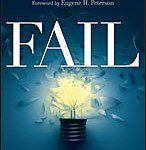This is the last in my short series on Steve Chalke and The Atonement Debate. The previous posts in this series can be found by clicking on the links below:
- Update on Steve Chalke and The Atonement Debate
- Steve Chalke Confirms He Does Not Believe in Penal Substitution
- Steve Chalke Argues Against Penal Substitutionary Atonement
- Steve Chalke and Neglect of the Resurrection
In his chapter of the book, The Atonement Debate, Steve Chalke continues with a classic argument from silence. He claims that Jesus did not teach this doctrine himself and therefore it is questionable.  He also argues that before Jesus’ death he would not have had any gospel message to share if PSA is true. The second aspect of this is easy to dispatch since it betrays a very linear view of time. Romans 3 makes clear that it was Jesus’ death that enabled God to overlook sins committed beforehand. In addition, I have often wondered what Chalke believes about hell. Jesus teaches a lot about hell, and a number of his parables refer to eternal suffering. Surely he is describing the problem he is about to solve in doing this. Also, at the climax of his ministry the necessity of his death is very clear to Jesus, and his words describing it as a cup he must drink are poignant. If PSA is not true, it is difficult to see how Jesus’ death was so absolutely necessary. In any case, Jesus did not have to directly teach this doctrine in order for it to be true.
He also argues that before Jesus’ death he would not have had any gospel message to share if PSA is true. The second aspect of this is easy to dispatch since it betrays a very linear view of time. Romans 3 makes clear that it was Jesus’ death that enabled God to overlook sins committed beforehand. In addition, I have often wondered what Chalke believes about hell. Jesus teaches a lot about hell, and a number of his parables refer to eternal suffering. Surely he is describing the problem he is about to solve in doing this. Also, at the climax of his ministry the necessity of his death is very clear to Jesus, and his words describing it as a cup he must drink are poignant. If PSA is not true, it is difficult to see how Jesus’ death was so absolutely necessary. In any case, Jesus did not have to directly teach this doctrine in order for it to be true.
Chalke tries to negate concepts of God’s anger by essentially claiming that God is defined as love, and that fact trumps any mention of God as a God of wrath and anger and presumably holiness. He then devotes an entire section to the cultural implications of PSA, which he says plays into notions of violence and “might is right,” from which the rest of the world is moving away. He also claims it is too individualistic. In fact, in this section he seems to be in danger of removing altogether the importance of the individual’s relationship with God. There is even a statement that he does not like the notion that someone can believe they are saved in an instant, claiming that “separates salvation from discipleship” (page 42). It is vital for us to separate salvation from discipleship, or legalism and justification by works is the result. We do not live good lives in order to be saved. I have long been suspicious that removing the doctrine of penal substitutionary atonement inevitably weakens our belief that it is Jesus who saves us in favor of the notion that we have to do something in order to earn our way to heaven. Without fully expressing this, Chalke certainly seems to be implying it. He does not clearly elucidate his views on justification here, however, so I need to be careful, but remain very curious about the implications of what he is saying.
Finally, and perhaps most helpfully, in his closing section Chalke explains what he has put in the place of PSA. Basically he believes in the Christus Victor model whereby it is the victory won by the death and resurrection of Jesus that is key to our salvation. But before he gets there, he makes a clear statement about attempts to “soften” PSA, some of which he believes are even present in The Atonement Debate, to which he is a contributor.
“Since my book was published, and in the serious theological debate that has followed it, some have sought to readdress their definition of penal substitution. I have witnessed various attempts to redraw, redefine, recast, remodel, and rehabilitate the theory as “not really as violent and retributive a concept as The Lost Message of Jesus suggested.” But the problem is simply this: this is not how the situation is perceived either within or beyond the church. So, whilst I applaud these attempts to manufacture a kind of “penal substitution theory lite”—some of which will, no doubt, be presented in other contributions to this book—in my view, what we need is not a reworking but a renunciation” (page 42).
Chalke and I do agree on at least one thing. PSA should not be softened. We should either reject it completely as he is calling for, or, as many millions have, accept it as a precious truth despite all its shocking gruesomeness.
If you would like more information about the atonement, I would recommend the book Pierced for Our Transgressions, or you could read through my previous atonement series in the links found in the following posts from my bog,“Atonement Wars” and “More Atonement Wars.”
















